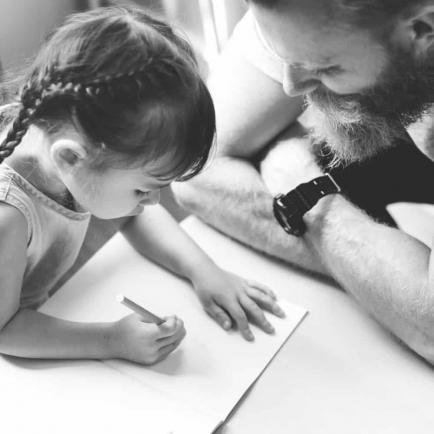
When we discipline our kids, we're doing something really important. We're trying to teach them how to behave when we're not there. We're teaching them how to deal with all of the different situations they'll encounter in life. In short, when we discipline our kids, we're trying to teach self-discipline.
Many discipline strategies send the wrong message. The message might be "Mom's in charge," or "Don't get caught." But Mom isn't in charge, or at least she won't be forever, and no one really wants to teach their child that he can do whatever he wants, as long as he doesn't get caught.
There are, however, some strategies that encourage long-term self-discipline. Here are a few of them:
Logical consequences
Linking the behavior to the consequence helps even a very young child start to practice an early form of self-discipline. So never say "if you don't put your shoes on now, I'm going to punish you," but rather, "if you don't put your shoes on now, we won't have time to go to the park today." Be prepared to actually miss that trip to the park, at least once. If your child is upset, just say that you're sad there was no time for the park today too. Suggest everyone get ready on time tomorrow so it doesn't happen again.
This can be applied to all sorts of things. "If you don't eat well you won't grow big enough to go on the roller-coasters at Disneyland next summer." "If you break my ornaments, playing rough indoors, I'll have to spend money on new ones, so I'll have less to spend on your birthday presents."
Self-discipline starts when you realize your actions affect your outcomes.
Time out
Time out can be a controversial strategy. As Daniel J. Siegel, M.D. points out in his book, No-Drama Discipline: The Whole-Brain Way to Calm the Chaos and Nurture Your Child's Developing Mind,isolation is not always a suitable punishment for a child who is already upset and emotional.
Time out however, can be a useful strategy that leads to self-discipline. In our house, time out is for the benefit of the person having it. It's not a punishment as such and it doesn't have to be spent alone, although it does involve removing the child from the situation causing the bad behavior or meltdown.
Time out can give everyone a break and a chance to cool down. Try using the phrase "mommy needs a time out" when you're stressed and need to go somewhere quiet and calm for a breather. This shows your kids that time out is beneficial and sometimes necessary to calm down and put things in perspective. There are many situations in life where disciplining yourself to take some time to calm down before acting leads to a much better outcome.
Put it in the box
This is a strategy I learned years ago when I worked as a summer camp counselor, and I've used it in countless situations since. For older kids (especially when it comes to squabbling between siblings or in group situations), instead of listening to grievances all day, tell them to write down what happened and put it in a box. This works really well (as long as the consequences of what happened don't require immediate attention). At the end of the day, open the box and talk through what's in it. Often, it will be things that no longer matter to anyone involved.
This teaches children to 'delay' their reactions, when appropriate, and be able to carry on with their day. They'll get to reassess the bits that didn't go well later, in context. This self-discipline strategy can help in work, relationships and other adult situations. Sometimes we all need to mentally put something in a box and carry on with the task at hand.
Ignore the bad behavior, reward the good
This is hard to do sometimes, but often worth it. A lot of bad behavior is just attention seeking (and it works). A lot of good behavior goes unpraised and unrewarded. Change your focus. Take some time to praise your child while he's playing quietly or calmly occupying himself doing something constructive.
When bad behavior doesn't need to be addressed, try ignoring it. Wait for something good to happen and then go in with more praise or offer a reward.
This helps develop self-discipline as your child automatically starts to associate appropriate behavior with pleasant outcomes.
Self-discipline is learned, and you are your child's best teacher. It makes sense to use discipline strategies that encourage your child to start practicing self-discipline.

